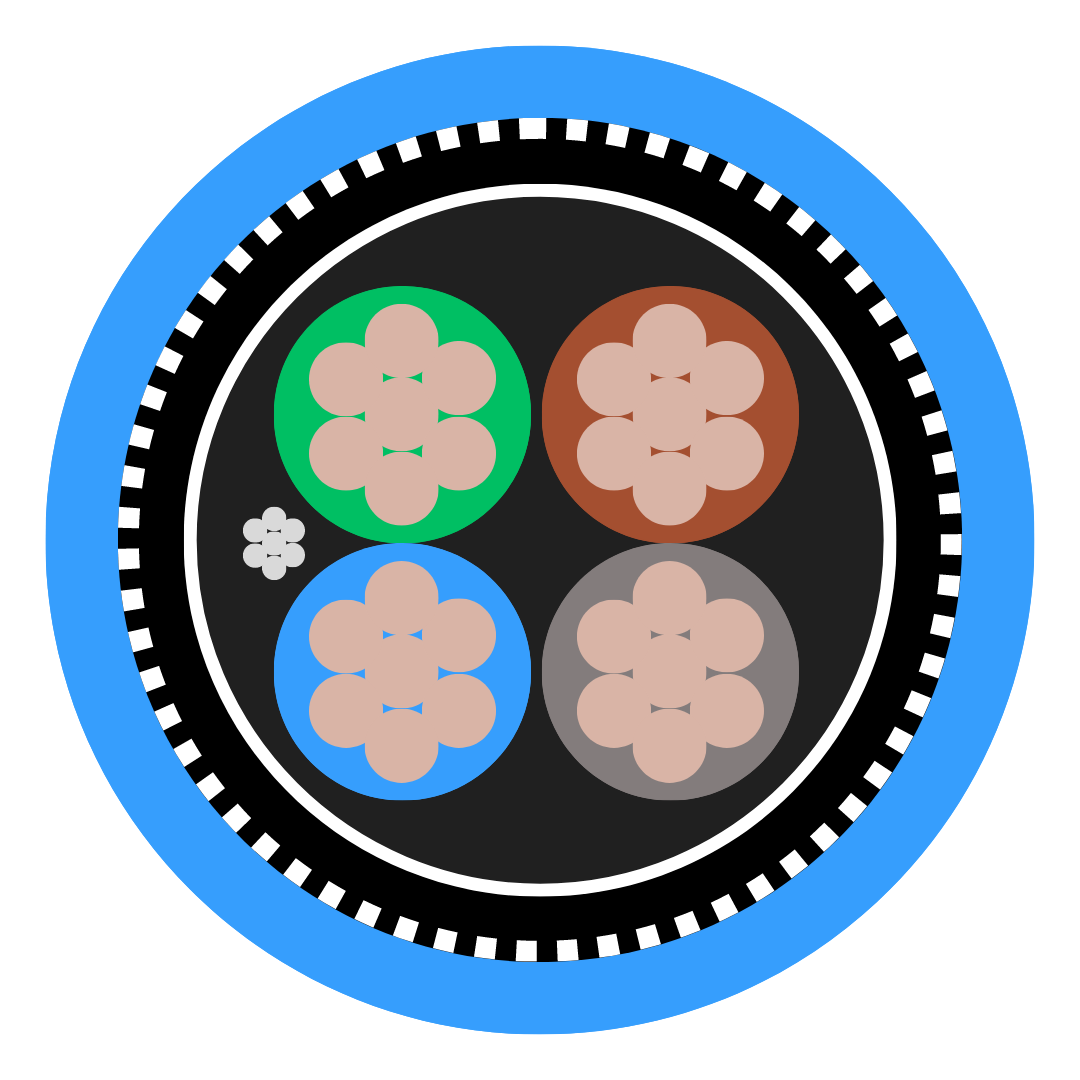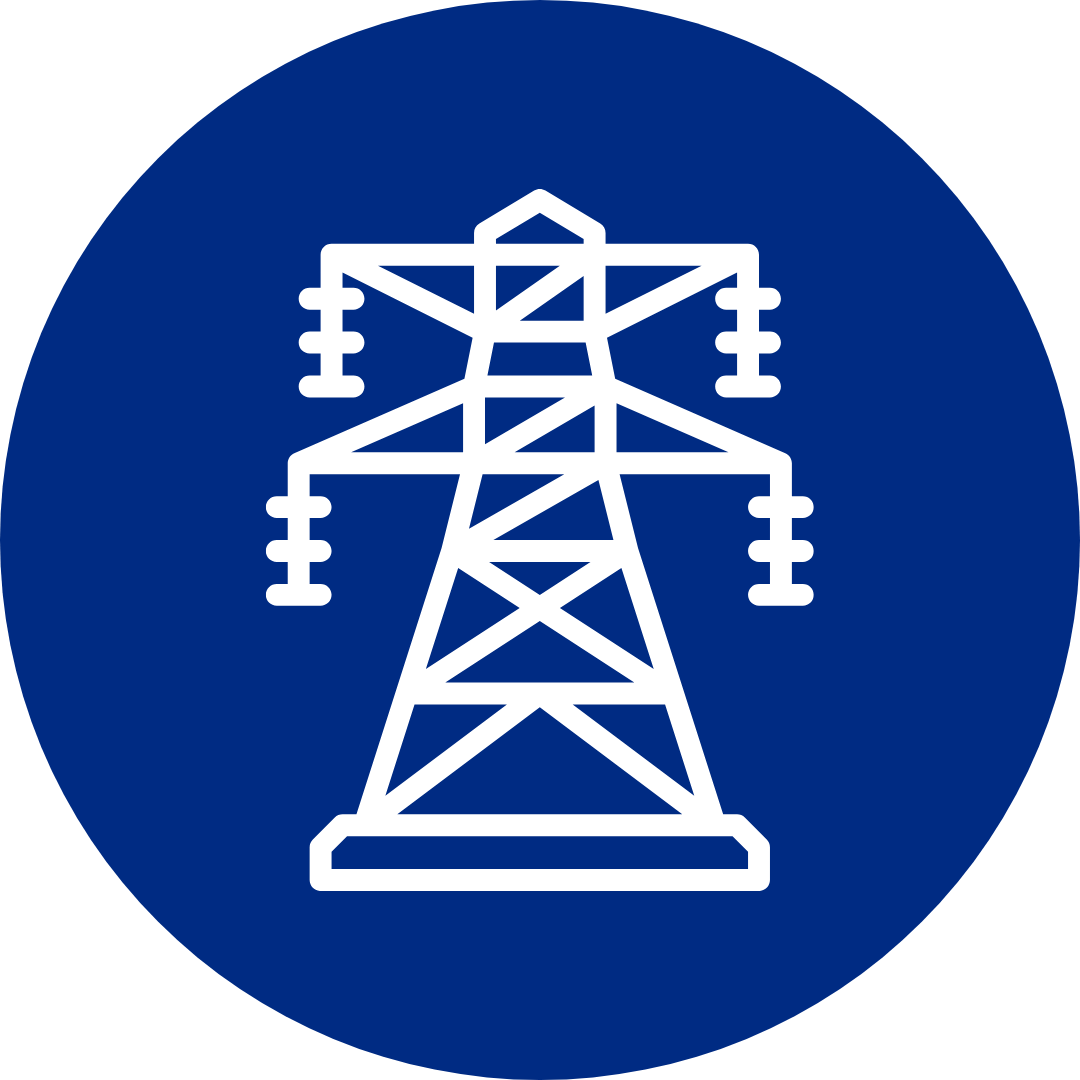Multicore cables are key components in many modern electrical and data communication systems, offering a great number of advantages over traditional single-core cables.
At Cableworld, we are proud to be a leading supplier of high-quality multicore cables in the UK, providing solutions that meet the diverse needs of our clients. In this guide, we’ll explain what multicore cables are, their applications, and their benefits.
What is Multicore Cable?
A multicore cable consists of multiple individual cables, known as cores, bundled together within a single outer sheath. Each core is insulated to prevent electrical interference and signal degradation. This construction allows multicore cables to carry multiple signals simultaneously, making them highly efficient and versatile for various applications.
Difference Between Single Core and Multicore Cable
Single core cables contain only one conductor per cable, whereas multicore cables have multiple conductors bundled together. This fundamental difference leads to several distinct advantages and disadvantages for each type.
Advantages of Multicore Cables
Space Efficiency
Multicore cables save space as they combine multiple signals into a single cable.
Reduced Installation Time
With fewer cables to install, multicore cables simplify the installation process.
Improved Organisation
Managing a single multicore cable is easier than handling multiple single core cables, enhancing cable management.
Disadvantages of Multicore Cables
Complexity in Repairs
If one core is damaged, it may be more challenging to repair compared to single core cables.
Higher Initial Cost
Multicore cables can be more expensive upfront due to their complex construction.
Advantages of Single Core Cables:
Simplicity in Design
Single core cables are straightforward and easy to repair.
Lower Initial Cost
Generally, single core cables are less expensive than multicore cables.
Disadvantages of Single Core Cables
Space and Installation
Single core cables can take up more space and be more time-consuming to install.
Types of Multicore Cable
Multicore Insulated Cable
Multicore insulated cables are designed for general electrical applications where multiple circuits need to be routed in a compact and organised manner. They are commonly used in control panels, electrical installations, and machinery. The insulation on each core provides excellent protection against electrical interference and physical damage.
Multicore Audio Cable
Multicore audio cables are specifically designed for transmitting audio signals. These cables are used in professional audio equipment, recording studios, and live sound setups. They ensure high-quality sound transmission with minimal interference, making them essential for clear and reliable audio performance.
Multicore Data Cable
Multicore data cables are used for transmitting data signals in networking and communication systems. These cables are essential in data centres, office networks, and telecommunications. They offer high-speed data transfer rates and are designed to minimise signal loss and electromagnetic interference.
Multicore Industrial Cable
Multicore industrial cables are built to withstand harsh environments and are used in industrial applications such as manufacturing plants, automation systems, and heavy machinery. These cables are robust, durable, and provide reliable performance in demanding conditions, ensuring the smooth operation of industrial equipment.
By understanding the various types of multicore cables and their specific applications, you can choose the right cable for your needs. At Cableworld, we offer a wide range of multicore cables to meet the demands of different industries and applications.
Applications of Multicore Cable
Industrial Applications
Multicore cables are widely used in industrial settings due to their ability to efficiently transmit multiple signals within a single cable. They are commonly found in control panels, automation systems, and heavy machinery.
The benefits of using multicore cables in industry include reduced cabling complexity, which simplifies installation and maintenance, and improved reliability, as the bundled cables are less prone to damage from environmental factors.
Audio and Entertainment Applications
In the audio and entertainment industry, multicore cables play a crucial role in ensuring high-quality sound transmission. These cables are used in professional audio setups, recording studios, and live sound environments.
The advantages of multicore cables in these applications include enhanced audio quality, due to reduced interference, and increased system reliability. By combining multiple audio signals into a single cable, multicore audio cables simplify setup and teardown processes, making them essential for efficient and effective audio management.
Data Transmission Applications
Multicore cables are essential in data transmission applications, including data centres, office networks, and telecommunications. They support high-speed data transfer and reduce electromagnetic interference, which is crucial for maintaining data integrity and network efficiency.
The benefits of using multicore cables for data transmission include improved network performance, faster data transfer rates, and the ability to handle higher data loads without compromising on speed or reliability.
Benefits of Multicore Cable
Space Efficiency
One of the primary benefits of multicore cables is their space efficiency. By bundling multiple conductors into a single cable, multicore cables reduce the amount of space required for wiring. This is particularly advantageous in environments where space is limited, such as in control panels or densely packed data centres.
Reduced Installation Time
Multicore cables significantly reduce installation time. With fewer cables to run and manage, the installation process becomes faster and easier. This efficiency not only saves time but also reduces labour costs, making multicore cables a cost-effective solution for large-scale installations.
Improved Organisation
Multicore cables enhance cable management and organisation. By consolidating multiple signals into one cable, they reduce clutter and make it easier to identify and manage connections. This organised approach simplifies troubleshooting and maintenance, leading to better overall system management.
Enhanced Performance
Multicore cables offer better performance in terms of signal integrity and durability. The insulation and shielding in multicore cables protect against electrical interference and physical damage, ensuring reliable and consistent performance. This durability makes multicore cables suitable for demanding applications where reliability is crucial.
Choosing the Right Multicore Cable
When selecting a multicore cable, it is important to assess the specific needs of your application and the environmental conditions in which the cable will be used. Consider factors such as the required voltage and current levels, temperature range, and exposure to chemicals or physical stress. Evaluating these requirements will help you choose a cable that can withstand the demands of your application.
Multicore Cable Specifications
Key specifications to look for when choosing a multicore cable include the number of cores, conductor size, insulation type, and shielding. Each of these factors will impact the cable’s performance and suitability for different applications. For instance, industrial applications may require robust insulation and shielding to protect against harsh conditions, while audio applications may prioritise flexibility and signal integrity.
Based on your specific use case, select a cable that meets the necessary specifications to ensure optimal performance and longevity.
By understanding the various applications and benefits of multicore cables, you can make informed decisions about which type of cable is best suited for your needs. At Cableworld, we offer a wide range of multicore cables designed to meet the demands of different industries and applications, ensuring that you find the right solution for your project.
Frequently Asked Questions (FAQs)
What is a multicore cable?
A multicore cable consists of multiple individual cables, known as cores, bundled together within a single outer sheath. Each core is insulated to prevent electrical interference and signal degradation. This design allows multicore cables to transmit multiple signals simultaneously, making them highly efficient and versatile for various applications.
What are the benefits of using multicore cables over single core cables?
Multicore cables offer several benefits over single core cables, including space efficiency, reduced installation time, improved organisation and enhanced performance.
How are multicore cables used in industrial applications?
In industrial settings, multicore cables are used to streamline the wiring of control panels, automation systems, and heavy machinery. They simplify the installation process, reduce cabling complexity, and improve system reliability. Some multicore cables are robust and durable, making them suitable for harsh industrial environments where they are exposed to physical stress and environmental factors.
How do I choose the right multicore cable for my project?
To choose the right multicore cable for your project, consider the following factors:
Determine the specific requirements of your application, such as the type of signals being transmitted.
Assess the environmental conditions, including temperature, humidity, and exposure to chemicals.
Evaluate the voltage, current levels, and physical stress the cable will need to withstand.
Consulting with a professional or using a cable specification guide can also help ensure you select the appropriate cable.
Can multicore cables improve audio quality in entertainment systems?
Yes, multicore audio cables can significantly improve audio quality in entertainment systems. These cables are designed to reduce interference and maintain signal integrity, ensuring clear and reliable sound transmission. By bundling multiple audio signals into one cable, they simplify installation and improve system reliability, making them ideal for professional audio setups and live sound environments.
How do multicore cables enhance data transmission in networks?
Multicore cables enhance data transmission in networks by providing high-speed data transfer with minimal signal loss and electromagnetic interference. They support multiple data channels within a single cable, improving network efficiency and reducing the complexity of network installations.
By offering reliable and consistent performance, multicore data cables help maintain the integrity of data signals, ensuring fast and efficient communication in networking environments.
By understanding the various applications, benefits, and factors to consider when choosing multicore cables, you can make informed decisions that best meet your project's needs. At Cableworld, we provide a comprehensive range of multicore cables designed to deliver optimal performance and reliability across different industries and applications.
Alarm Cable
Arctic Grade Cable
Armoured Cable
Audio & Speaker Cable
Auto Cable
Bare Copper
Belden Equivalent Cable
Co-axial Cable
Data Cable
DC Telecom Cable
Defence Standard Cable
Emergency Lighting & Fire Detection Cable
EV Cable
Festoon
![Loose Tube Fibre Cross Section]()
Fixed Wiring PVC & LSOH Cable
Flatform
Flexible Control Cable
Flexible PVC Cable
Flexible Rubber Cable
General Wiring Cable PVC & LSOH
High Temperature Cable
High Voltage Cable
![5308 p1 t2 cat Cross Section]()
LSOH Flexible Cable
Medium Voltage Cable
NYY & N2XH Cable
Protected Wiring Cable
Silicone Cable
Solar Cable
Split Concentric Cable
Spiral Cable
Temporary Power Cable
Tri-Rated Cable
Welding Cable
Alarm Cable
Arctic Grade Cable
Armoured Cable
Audio & Speaker Cable
Auto Cable
Bare Copper
Belden Equivalent Cable
Co-axial Cable
Data Cable
DC Telecom Cable
Defence Standard Cable
Emergency Lighting & Fire Detection Cable
EV Cable
Festoon
![Loose Tube Fibre Cross Section]()
Fixed Wiring PVC & LSOH Cable
Flatform
Flexible Control Cable
Flexible PVC Cable
Flexible Rubber Cable
General Wiring Cable PVC & LSOH
High Temperature Cable
High Voltage Cable
![5308 p1 t2 cat Cross Section]()
LSOH Flexible Cable
Medium Voltage Cable
NYY & N2XH Cable
PAS - BS5308 Instrumentation Cable
Protected Wiring Cable
RS-232 Cable
RS-485 Cable
Silicone Cable
Solar Cable
Split Concentric Cable
Spiral Cable
Telephone Cable
Traffic Signal Cables
Temporary Power Cable
Tri-Rated Cable
Welding Cable
Airports
Automation & Process Control
![Automotive]()
Building & Construction
Communication & Telecommunication
Data Centres
Defence
![DNO 1]()
E-Mobility
Food & Beverage
Marine & Offshore
Mining, Drilling & Tunnelling
OEMs
Oil, Gas & Petrochemical
Rail & Metro
Renewable Energy
Switchgear
Power
Water Treatment













































